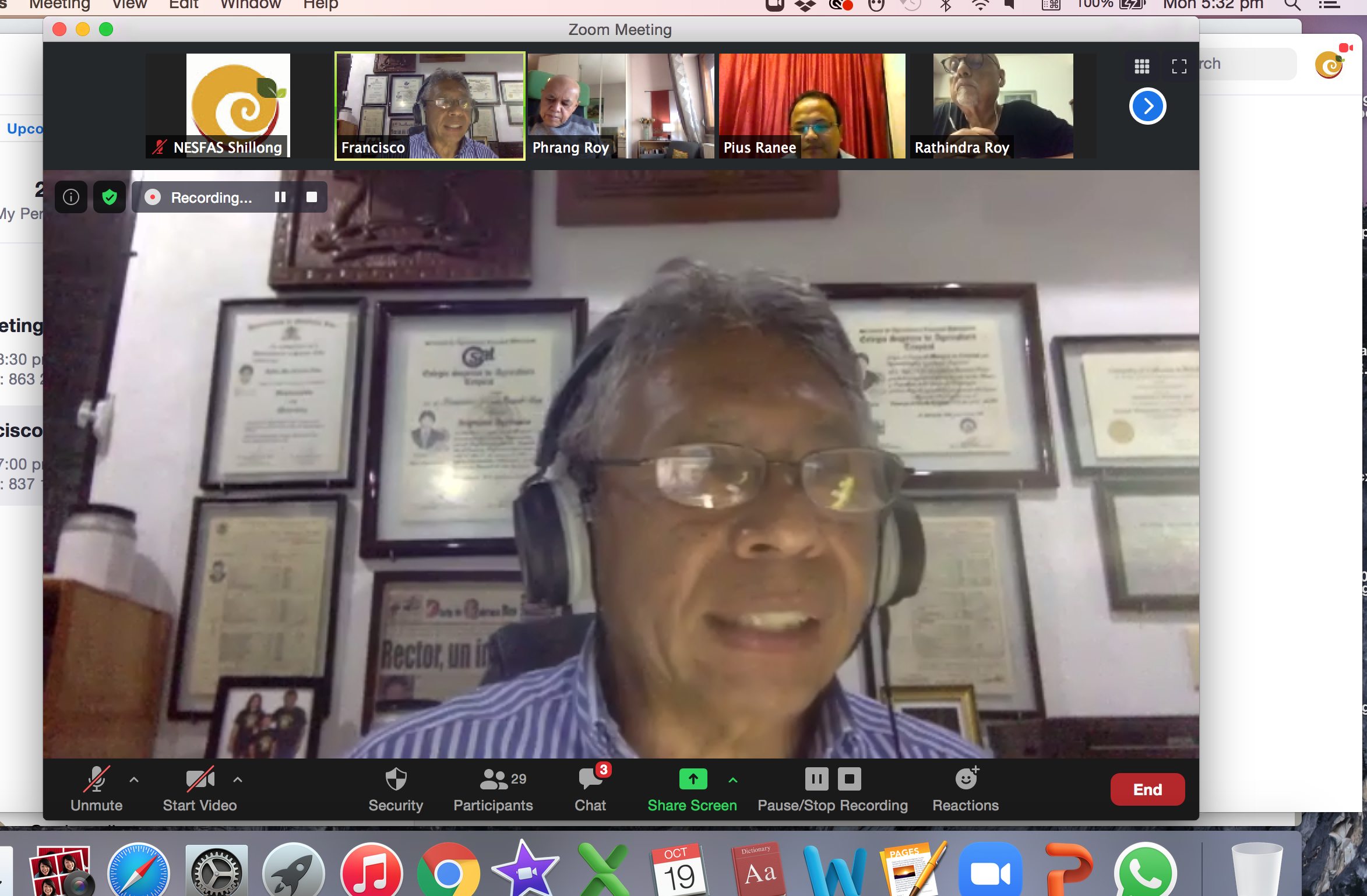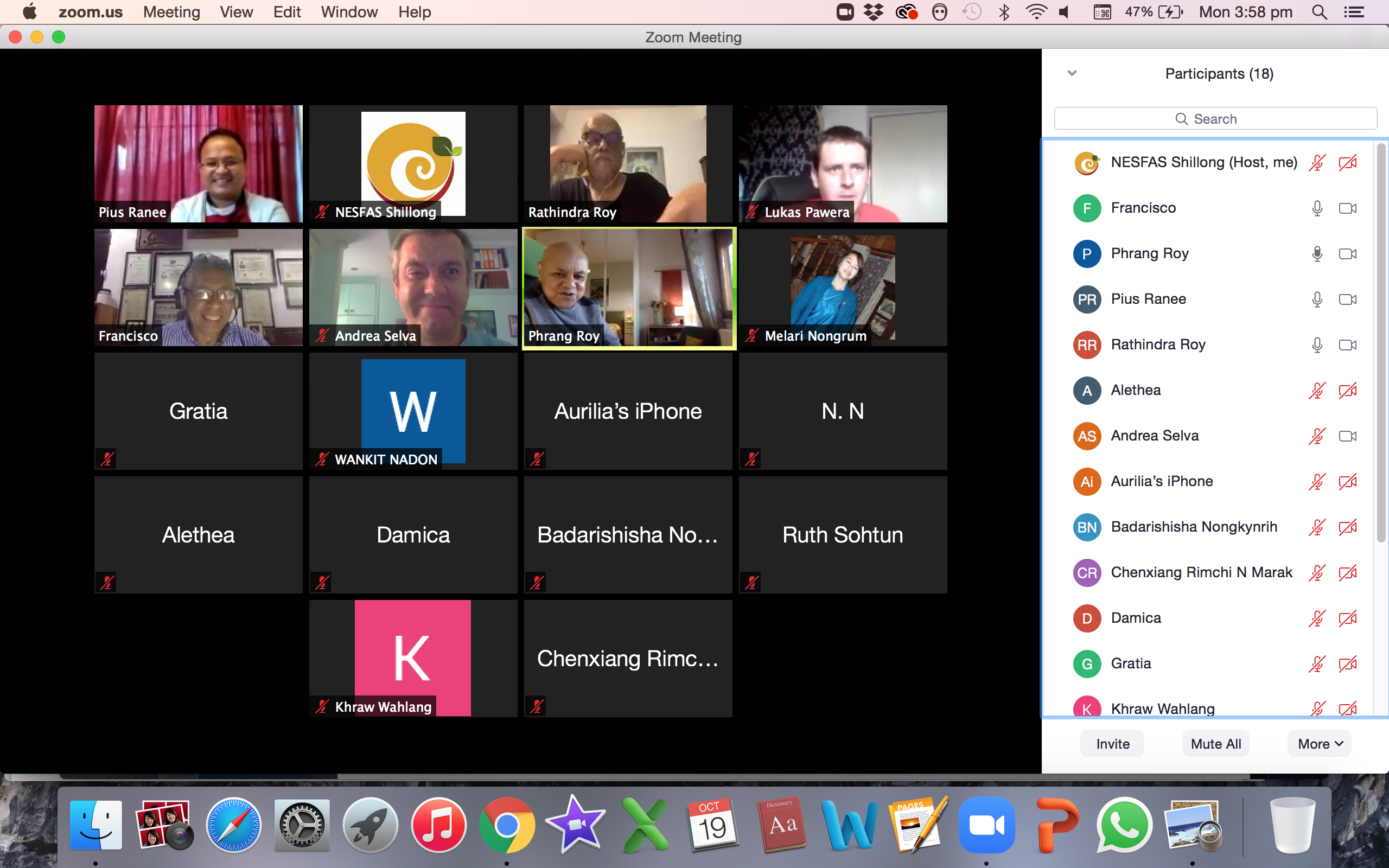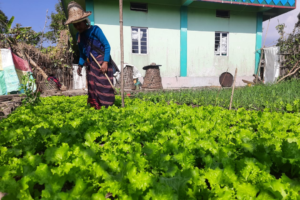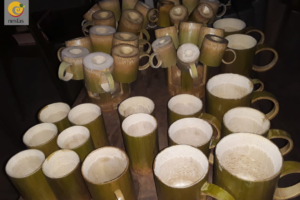NESFAS in collaboration with The Indigenous Partnership (TIP) held an online conference with Dr Francisco J. Rosado-May of the Mayan Intercultural University of Quantana Roo, Mexico on October 19, 2020. He presented a lecture on agroecology and how indigenous communities are uniquely dealing and internalizing the COVID-19 pandemic.
Dr. Francisco Javier Rosado-May is known to be a direct descendent of the last Mayan leader – Gral Francisco — of the Caste War (war fought against the Mexicans in 1847-1912 in search for sovereignty). Gral signed the peace treaty with the Mexican government and promoted bilingual education throughout the Maya area of Quintana Roo in the early twentieth century.

Dr. Rosado-May has been the President of the University of Quintana Roo and the Founding President of the Intercultural Maya University of Quintana Roo. Under his leadership in 2005, the University was acknowledged to have the highest quality educational programmes as per international standards out of three public institutions in Mexcio.
He visited NESFAS in 2016 where he supported the organisation when it was introat the initial stage of introducing Agroecology as a framework. Dr. Rosado-May is also a keen supporter of the ongoing Agroecology Learning Circle (ALC) programme of NESFAS. ALC is a farmer-led project where their ‘laboratory’ is the fields, following the lines of the Farmer Field Schools. It is a creative and collective space where community members and scientists meet to exchange knowledge about new skills, learning capacities, new tools and several processes to enhance local agroecology practices, food sovereignty and social transformation through local food initiatives.
Dr. Rosado-May began his presentation by comparing the cultural, agricultural, architectural aspects between Mexico and Meghalaya. He pointed out that both communities share similar traits and elements that could be found in both communities. His presentation moved on to explaining what agroecology is and the intercultural approach which must be adopted by nations for a holistic development.

He said, “The academic world has a mission which is creating knowledge and sharing it via. publications. In the field of ecology, it was born from studying the traditional agricultural systems and traditional knowledge. Academics had presented these findings through western scientific fashion and they would benefit from these researches. Very little knowledge came back to the traditional communities and also there was no visibility of the concepts and knowledge they gave access to.” He added, “The knowledge that is created is not unilateral. Co-creation of knowledge is the essence of agroecology in traditional culture and indigenous communities. We have to understand the process of thinking and the system of creating knowledge by farmers and indigenous people have. Through the process of co creation, share these knowledge while also make them visible and co authors which will result in intercultural knowledge.”
Dr. Rosado-May also explored the principles of agroecology, which was derived from ecology, and traditional knowledge, which reflects on the diversity of this study. He added, “We can embrace our own principles and adopt them in our practices.”
An interactive session was followed which dissected the scope of language in local cultures and the various skills of observation. In a conversation with NESFAS advisor Rathin Roy, Dr. Rosado-May opened up about the use of language through a view of the non-weed concept and how complex these issues are; indigenous people and farmers have sophisticated thought process which is an outcome of their own efforts should be allowed to take up space in the scientific world to exchange their ideas and practices with other farmers and indigenous people.
He commented, “The trainings by western scientific education and the trainings by indigenous people are so different. Indigenous people have their own systems, concepts and understanding of the ecological world and use local names which are different from western training.”
Dr. Rosado-May also documented the importance of observational skills by indigenous people and how different it is to western training. Observation by indigenous people is constructive, has practice and values. Further, he mentioned how sophisticated and board indigenous thinking is.
He also explained the importance of the role of government agencies in the distribution of subsidies which will slow down the progress when there is no alternative to Green Revolution.
The conference closed with closing remarks from NESFAS’ Chairman Phrang Roy who summed up the session by highlighting the points by of the keen observation skills by indigenous people and to make them visible by making their learnings not to heavy when they learn on their own. He added that agroecology can also be understood by learning the social fabric of the society.





